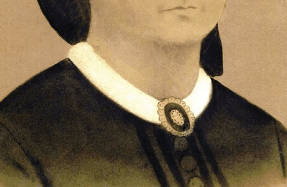GENERAL DISCORD

he late summer of 1862 was not a good time for Union fortunes in the Eastern Theater. During the August 28-30 Second Battle of Bull Run, Maj. Gen. John Pope’s Army of Virginia went down to defeat at the hands of General Robert E. Lee’s Army of Northern Virginia. Lee then turned his columns to the northwest, and the Federal high command rushed to merge Pope’s force with Maj. Gen. George B. McClellan’s Army of the Potomac to meet the threat. At the September 17 Battle of Antietam, McClellan won a blood-drenched victory, but Lee managed to escape to fight another day. ¶ Over the years, it has been fashionable for some historians to rely on conspiracy theory to portend why the Federal victory at Antietam was not greater, that discord among the Army of the Potomac’s high command precluded destruction of the Army of Northern Virginia. ¶ The characters in this supposed ego-over-country drama were all professional soldiers of the U.S. Army. McClellan; Maj. Gen. Ambrose Burnside, one of his wing commanders; and Maj. Gen. Fitz John Porter, leader of the 5th Corps, knew each other before the war and were considered friends. Each graduated from the U.S. Military Academy at West Point within a three-year period from 1845 to 1847. Pope, an 1842 West Point graduate, also played a role in the drama. ¶ The old story is that the crucible of war caused McClellan and Porter to backbite their formerly affable comrade, Burnside. That infighting weakened the Federal resolve during the critical fighting at Antietam, costing the Army of the Potomac total victory, and hampering the pursuit of Lee’s battered army afterward. A closer look at the sources, however, does not indicate such a controversy existed, and that much of it was
You’re reading a preview, subscribe to read more.
Start your free 30 days





